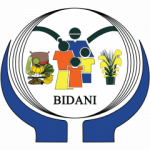
Introduction
The Barangay Integrated Development Approach for Nutrition Improvement (BIDANI) is a comprehensive nutrition-in-development strategy emphasizing the need to mainstream improving the nutrition of Filipinos towards achieving rural development.
BIDANI traces its roots in the Nutrition Improvement Model (NIM) formulated in 1978 by the University of the Philippines Los Baños (UPLB). It was an action research program funded by the UN Food and Agriculture Organization (FAO), German World Hunger Assistance Program, National Nutrition Council (NNC), and the then National Science and Technology Authority (NSTA). Starting with six rural barangays with varying agro-ecological settings in five municipalities and one city in the provinces of Laguna and Batangas, it then expanded to 12 more barangays in 1980, and an additional 50 barangays in 11 east Laguna towns in 1984.
In 1984, the NIM evolved into BIDANI. The following year, 1985, BIDANI as a network program composed of various state colleges and universities (SUCs) across the Philippines was established. Starting with five SUCs that were trained to replicate the BIDANI strategy through research and project activities, the network kickstarted with funding support from the National Nutrition Council (NNC) and Philippine Council for Agriculture, Aquatic and Natural Resources Research and Development (PCAARRD). These two agencies funded the program from 1986 to 1989.
To strengthen the network program, which is now composed of seven SUCs, a five-year bilateral assessment grant was granted by the Netherlands Government Directorate for Development Cooperation (DGIS). Phase I was conducted from 1990 to 1991, while Phase 2 commenced in 1996 and lasted until 2000, owing to the exemplary performance of the SUCs.
In the year 2000, the University of the Philippines Board of Regents (BOR) formally institutionalized BIDANI in UPLB and UP Visayas during the Board’s 1144th Meeting on 31 August 2000. The Board’s resolution cites BIDANI as a demonstration of “the technical assistance and leadership UP provides in strengthening the extension mandate of sister academic institutions of higher learning around the country.”
As of 2022, eight member SUCs remain under the BIDANI Network Program – including UPLB, which serves as the national coordinator – spanning 647 barangays in six cities and 32 municipalities, 11 provinces, and seven regions throughout the Philippines. With UPLB as program lead, the member SUCs include: Bicol University, Batangas State University, Central Luzon State University, Central Mindanao University, Isabela State University, University of the Philippines Visayas, and Visayas State University.
BIDANI serves as the academe’s unique and continuing contribution to national development, owing to the sustainability of the BIDANI strategy. On the side of governance, it enables local leaders and their people to appropriately intervene directly and indirectly in solving problems regarding nutrition and development through the Barangay Integrated Development Approach (BIDA). It also institutionalizes effective and efficient development program planning and implementation through the Barangay Management Information System (BMIS). In terms of its nutrition components, BIDANI contributes to the reduction of malnutrition prevalence in barangays covered by the network program through the Participative Nutrition Enhancement Approach (PNEA).
Rationale
The BIDANI Network Program has been working in its catchment areas all over the Philippines for the past four decades — acting as one of the members of the technical committee of the National Nutrition Council, the highest nutrition policy-making body in the country; and providing continuous technical assistance to its partner local government units implementing the three BIDANI innovative strategies.
This 2023, the BIDANI Network Program is celebrating its 45th anniversary. Recuperating from the impacts of the COVID-19 pandemic, the network of SUCs will hold a convention to celebrate the achievements of the Program and share the best practices of each implementing SUCs. The convention will be an avenue for the network of SUCs to discuss the past and emerging challenges that the SUCs have or will encounter in the future. It will also be an opportunity for the SUCs partner LGUs to present their experiences in implementing the three BIDANI innovative strategies. Furthermore, through the convention, it is also intended to revive the Board of Directors of BIDANI, to secure the SUCs commitment in working towards a unified goal — Nutrition Improvement — creating an avenue for the Program to work in sync to address common challenges in Nutrition faced in the different BIDANI catchment areas in the Philippines and in accordance to BIDANI’s commitment in the realization of the goals of the Philippine Plan of Action for Nutrition.
Event Objectives
Specifically, the proposed convention aims to:
- Organize a convention for a systematic and academic sharing of experiences and challenges faced in the implementation of BIDANI;
- Serve as an avenue to discuss solutions for pressing issues in the implementation of the BIDANI Innovative Strategies in their respective catchment areas; and
- Provide a venue for the revitalization of the BIDANI Board of Directors.
